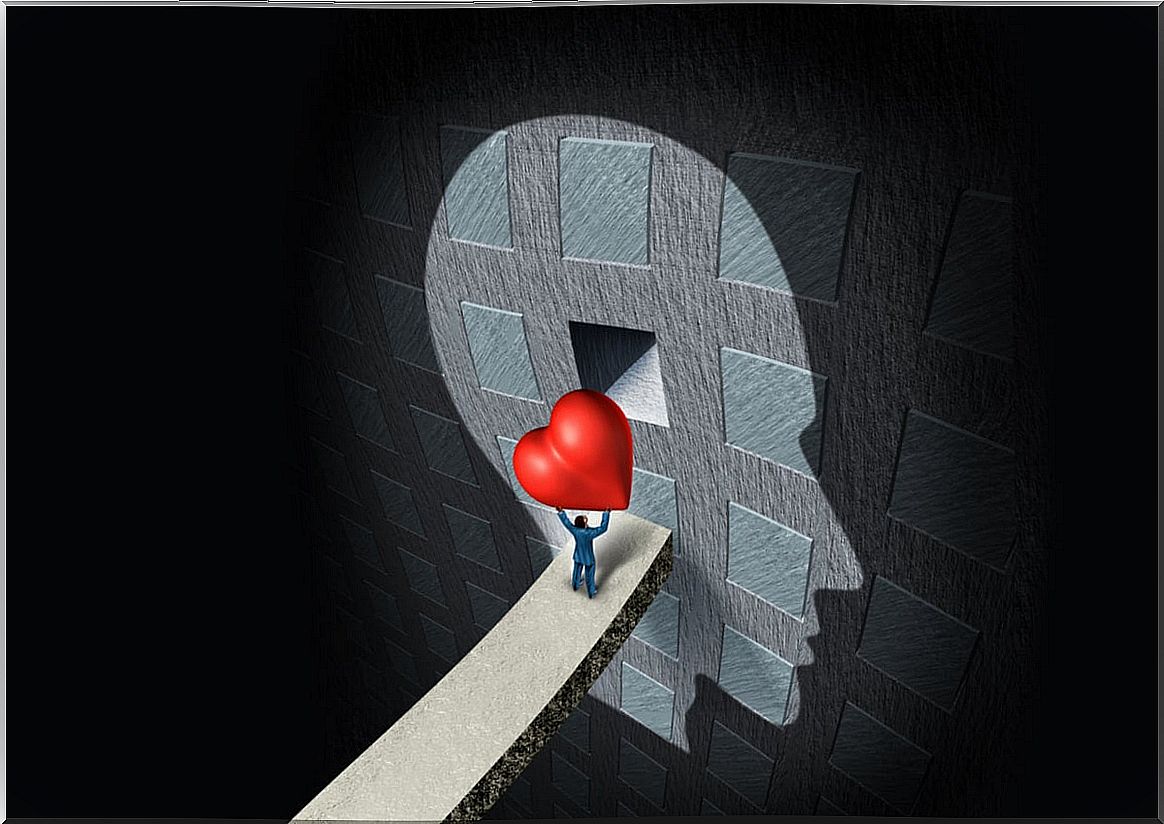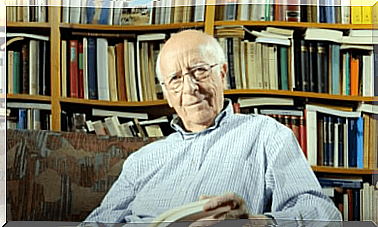Intense Emotions Are The Most Difficult To Understand

There is a popular belief, and it is that the more painful, stabbing and uncomfortable an emotion is, the easier it is to name it. How can I not know that what I feel is anger, rage, anger or sadness? The truth is that intense emotions are the most difficult to understand, the ones that get stuck the most and tend to internalize to shape problematic psychological states.
We could say that among all the skills that we should develop to mediate our well-being, such as self-esteem or self-knowledge, emotional management is key. However, it is very common to reach adulthood and go through this mismanagement of psychophysical states. This causes us to end up acting inappropriately, like three-year-olds frustrated with the world and with life itself.
The activation generated by certain emotions experienced at a high intensity can be something really complex. Knowing how to understand, manage and handle these states will undoubtedly mediate our well-being and our satisfaction.

Why are intense emotions the most difficult to understand?
Painful, contradictory, explosive, unexpected and even terrifying. Emotions define us, make us human, and determine our behaviors. There is nothing wrong with experiencing anger, fear, anguish, sadness, or despair. What is truly dangerous is letting ourselves be carried away by these emotional states.
Therefore, for fear of acting in an unfortunate way, what we often do is repress the emotion felt. We carry it out like someone who swallows a stone, quickly and by force, without thinking. So in the end we end up feeling that pain in the stomach, that inexplicable weight, that discomfort that becomes somatized and that slows down life.
The most curious thing about all this is that intense emotions are the most difficult to understand, name and manage. Let’s take an example. We are talking with our partner and suddenly that dialogue ends in discussion until at one point we tell the other person that we better leave it for another moment because we only feel like screaming.
In our interior many sensations that we cannot define intermingle. The emotions are so deep and raw that we just feel the urge to lock ourselves in our room and rest. Why is it so difficult to say in words what we feel?
Psychophysiological intensity I can’t think straight!
When we get hit on the arm, it is easy to understand why that area hurts. However, after that discussion with our partner, it may be difficult to explain in detail what it is that hurts, bothers and worries in detail. It is all at once. It is a complex tangle of sensations that is very difficult to describe and identify.
Natalie Holzt, a psychologist at the Max Planck Institute, is the author of a study that tries to unravel why intense emotions are the most difficult to understand.
In the first place, the greater the psychophysiological intensity, the more ambiguous the brain feels to know what is happening to us. Is it rage? Is it sadness? Is it anxiety? In the midst of these states the mind cannot think clearly. The greater the emotional intensity, the greater the difficulty to reflect. As Dr. Holtz herself points out:
Intense emotions and emotional overflow: I feel overwhelmed!
Intense emotions are the most difficult to understand because they often lead to emotional overflow as well. What does the latter mean? What does it consist of? These situations occur when self-regulation fails, when we cannot control a specific reaction. Suddenly, we feel overcome by contradiction, anguish, sadness, disappointment, anxiety …
We cannot contain any of these realities and suddenly we are gripped by endless emotions of mostly negative valence. This often occurs in very specific and specific situations (such as the above discussion). Also, it appears when a series of stressful experiences accumulate over time that ultimately overwhelm us.

What can we do when we experience very intense emotions?
There are personalities with a greater tendency to react or process reality more intensely. This makes blockages, overflows, feeling gripped and not knowing how to act in a specific situation are frequent. Also, not being able to clearly express what is happening to them further complicates this type of psychological reality.
What to do, therefore, in these situations? We analyze it.
How to act when I feel dominated by that intensity
Controlling emotional intensity requires two strategies: awareness and emotional regulation. However, to reach them it is necessary, first of all, to reduce this psychophysical hyperarousal induced by the sympathetic system. It is about calming the body first, to be able to work the mind later.
- Stand up, rest, find a quiet place and try to relax. Practicing deep breathing can help.
- Next, it is necessary to give space and presence to each felt emotion. Once the physical tension has been reduced, it is time to find out what is going on in our mind. We will try to observe what happens in it like someone watching a movie screen, without judging, without sanctioning, letting every sensation, feeling and emotion appear.
- Let’s understand what message those emotions want to give us. Let us understand if they demand changes from us, if they want us to pay attention to neglected realities.
Emotional regulation is learning that takes time, but it is always based on giving space to all felt emotions, with compassion and respect. Transforming them towards positivity, trying not to get carried away by them, is the key.









